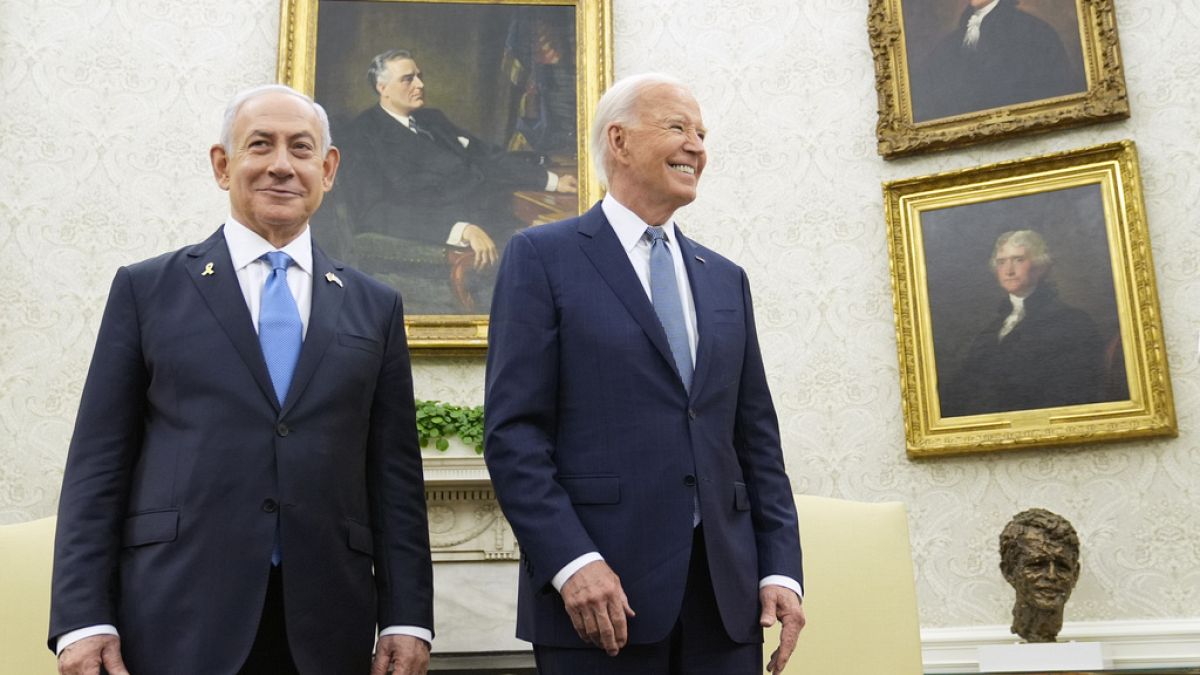The diplomatic tension between President Joe Biden and Prime Minister Benjamin Netanyahu has been growing as their views on the Gaza war diverge. Biden has expressed frustration over the lack of progress towards a peace deal in the Middle East, while Netanyahu has focused on decimating Hezbollah’s leadership. The issue of oil prices has further complicated matters, with speculation that Israel could target Iranian oil facilities as payback for missile attacks on Friday. Goldman Sachs warned that oil prices could jump significantly if such an escalation were to occur. Additionally, US presidential candidate Donald Trump has suggested that Israel should attack Iran’s nuclear facilities, further complicating the situation.
Biden has emphasized the importance of a diplomatic solution in the Middle East to address the ongoing conflict. He has pushed for a cease-fire in the Israel-Hezbollah conflict and has urged Israel to be cautious in its responses to avoid civilian casualties. Despite his support for Israel’s defence and security, Biden has expressed concerns about escalating tensions and the potential for an all-out war in the region. He has also ordered the US military to step up its presence in the region to protect Israel from attacks by various groups, including Hamas, Hezbollah, and Iranian-backed rebel groups.
Netanyahu’s resistance to Biden’s overtures and growing assertiveness have further strained the relationship between the two leaders. Biden has publicly held up the delivery of heavy bombs to Israel while expressing concerns about escalating tensions and the potential impact on civilian populations. Netanyahu’s focus on decimating Hezbollah’s leadership and his reluctance to pursue a diplomatic solution have contributed to the growing tensions between the US and Israel. Despite their long acquaintanceship, Biden and Netanyahu are not particularly close or friendly, and their differing approaches to the conflict have further complicated efforts to achieve a lasting peace agreement.
The issue of oil prices has added another layer of complexity to the situation, with concerns that Israel could target Iranian oil facilities in retaliation for missile attacks. The potential impact on global oil prices has raised concerns about the timing of such actions, particularly in the lead-up to the US election. Biden has emphasized that no decision has been made on how to respond to Iran and has cautioned against striking oil fields as a retaliatory measure. The potential fallout from such actions could have significant implications for the region and beyond, including affecting the outcome of the US election and Biden’s political future.
Donald Trump’s comments suggesting that Israel should attack Iran’s nuclear facilities have further inflamed tensions in the region. Trump’s close relationship with Netanyahu during his time in office, along with his policy changes supportive of Israel, have added a further layer of complexity to the diplomatic situation. The differing approaches of Biden and Trump towards the conflict have highlighted the challenges of achieving a lasting peace agreement in the Middle East. The ongoing tensions between the US, Israel, and Iran continue to be a volatile and unpredictable factor in the region, with far-reaching implications for global security and stability.









